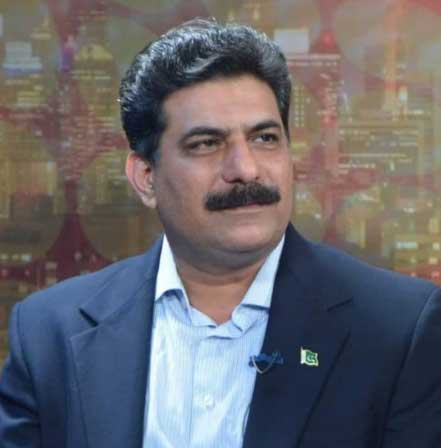After the birth of two countries, India-Pakistan, the water dispute started. In 1948, India started blocking the water coming to Pakistan, so Pakistan wanted a water sharing agreement between the two countries, at the same time the conflict between the two countries had also started over Kashmir. The source of the rivers flowing in Pakistan and India is also the Himalayan range which starts from Tibet and then various rivers enter the plains of both countries through Skardu, Gilgit, Baltistan and Kashmir. The different civilizations that flourished in the valleys of the rivers, such as the Nile River, the Euphrates River, which pass through different countries and also have water sharing agreements between them, every civilization have her own history. The water sharing agreement was not needed in united India, but after the formation of international border between the two countries in 1947, it became necessary.
The Indus Basin Treaty was concluded in 1960 in which the World Bank was the mediator between the two countries. The President of Pakistan, General Ayub Khan, signed the agreement and was assisted in the negotiations by his Minister of Water and Power, Zulfiqar Ali Bhutto. Today, the water vision of these two gentlemen is surprised that they did not link this agreement with the solution of the Kashmir issue, because the Kashmir issue is actually a war of control over water. No one has any sympathy for the bloodshed of the Kashmiri people.
Pakistan ceded the Eastern Rivers, Ravi, Sutlej and Beas to India forever, leaving Pakistan’s southern Punjab region barren. It was also announced to give some water of Western River, Chenab, Jhelum and Sindh to India and the right to withhold water for generating electricity was also recognized. India has started hydropower generation on Chenab and Jhelum, because economic development is possible only with cheap electricity. Pakistan could not collect water according to its needs, the goal of generating cheap electricity was not achieved, the Kashmir problem remained the same and differences also arose between the federation and the provinces on the distribution of water, so as a result of this agreement, A lot of damage has been done.
General Ayub Khan was very hesitant before the agreement, because he was told by an economist that in the future, if Kashmir is annexed to Pakistan, then this agreement will benefit you, if not, there will be difficulties, today this has been proven. That problems have arisen for Pakistan. Pakistan planned to build the Kala Bagh Dam, but the project fell victim to political deadlock. If Zulfiqar Ali Bhutto had not been hanged and President General Zia-ul-Haq had not carried out an operation to crush the MRD movement in Sindh, the people of Sindh would not have so much hatred against the federation, but Balochs and Pakhtuns would have been mistreated. For this reason, in their eyes, federation means Punjab and Punjab means military establishment. President General Ziaul Haq did not make a serious effort to build the Kala Bagh Dam with the help of Pir pagada, while the Pannu Aqil Cantonment also faced a lot of opposition and finally it was built, but the plan to improve the economy went backwards. Nawaz Sharif and Ms. Benazir Bhutto were also not against the project but they did not dare to build the dam due to the opposition of nationalist parties.
President General Pervez Musharraf also had the opportunity to do this work, but Altaf Hussain, the head of MQM, stopped him from this work. He was afraid of the opposition of MQM in Sindh.
India is constantly engaged in water aggression with Pakistan. Federation and provinces continue to make accusations and statements about water distribution, but no province has raised its voice till date for getting less water from India. The Provincial Assemblies passed a resolution against the Kala Bagh Dam, but no such voice was heard in any Provincial Assembly against India’s water aggression. India lobbies Pakistan a lot for not building a dam. This admission has come out on which the Federation of Pakistan should have worked seriously but did not.
In the light of the water distribution agreement of 1991, officers of the Sindh Irrigation Department are also appointed at Head Panjand, they should work diligently and try to treat it in case of water shortage. A canal irrigates the province of Balochistan from Guddu barrage, the Balochistan government has reservations on it from the province of Sindh, Karachi in the province of Sindh does not get twelve hundred cusecs of water for the whole year, while the influential political families tops the priority list of the Sindh Irrigation Department. Therefore, small farmers (Hari or Mazara) are suffering from problems while the areas of southern Sindh are also suffering from water shortage. Depletion of water storage is the root cause of the problem, from the partnership in the Indus Basin to the Indus Delta.
The rivers flowing in Pakistan are in full flow only 120 days of the year which include floodplain. After April, the snow melts from the mountains and in May, water starts flowing into the rivers. The water level rises in June and July, while the rains become the heaviest after the onset of monsoon. It seems that till September there is enough water in the rivers. This is the time when we should collect water in our lakes because after October the water level in the rivers is very low. The flow of water from Mangala and Tarbela dams through canals irrigates the fields, apart from this we have no water storage. If we want the flow of water to continue, then increasing the storage capacity is inevitable.
If the flow of water will increase from 120 days, then the water will be able to reach the Indus Delta, while the water obtained from the rains should also be stored, the used water should also be made reusable. A water purification system should be established from the sea and a drip irrigation system should be adopted for farming. Trees should cover 25% of the area in Pakistan, this will increase rainfall and reduce water scarcity further.
A constitutional amendment should be brought to protect the distribution of water between the federation and the provinces, in which the Water Vision 2050 should be prepared and approved unanimously. India has created a lot of water storage capacity and wants to amend the Indus Basin Treaty. To get more water from Pakistan. For this, the issue of Kashmir and water distribution should be jointly discussed, otherwise Pakistan will suffer from more water shortage by 2050.
Pakistan also has the capacity to build thousands of small and big lakes, for which planning should be done on a priority basis. Whatever we name it, water storage projects should be worked on for the needs of the entire country.
Why is Kala Bagh Dam important?




